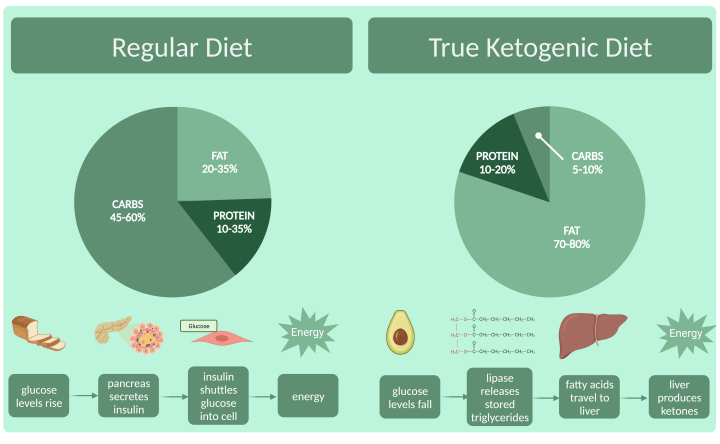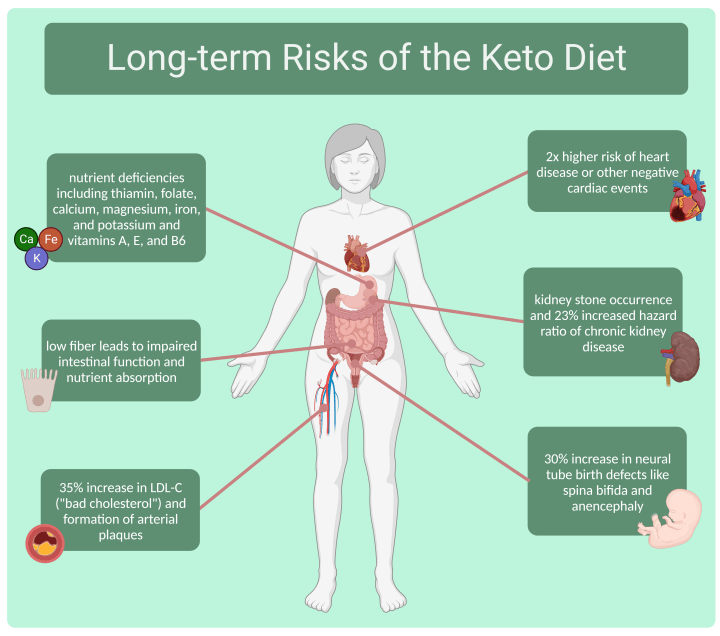Have you ever wondered if keto supplements actually work? Well, wonder no more! In this article, we will dive into the research and explore what science has to say about the effectiveness of keto supplements. Whether you’re new to the keto diet or a seasoned pro, understanding the potential benefits and limitations of these supplements can help you make informed decisions about your health and wellness journey. So, let’s take a closer look and see what the science has to say about keto supplements!
What are Keto Supplements?
Definition
Keto supplements, also known as ketogenic supplements, are products that aim to support a person’s adherence to a ketogenic diet. A ketogenic (or keto) diet is a high-fat, low-carbohydrate eating plan that forces the body into a metabolic state called ketosis.
Ketosis occurs when the body does not have enough glucose for energy and starts breaking down stored fat instead. To enter and maintain ketosis, the diet typically restricts carbohydrate intake to around 20 to 50 grams per day, while increasing fat consumption.
Keto supplements are designed to provide additional nutrients and compounds that are beneficial for those following a ketogenic diet. These supplements may include medium-chain triglyceride (MCT) oil, exogenous ketones, and electrolyte supplements, among others.
Types of Keto Supplements
There are several types of keto supplements available on the market. Each type serves a specific purpose and may have different effects on the body. Some common types of keto supplements include:
-
MCT Oil: MCT oil stands for medium-chain triglyceride oil. It is derived from coconut oil and is often used as a source of quick energy because it can be rapidly converted into ketones. MCT oil is a popular supplement among those following a ketogenic diet due to its potential to increase ketone production and enhance fat burning.
-
Exogenous Ketones: Exogenous ketones are ketone bodies that are consumed externally, usually in the form of a powder or a drink. These ketones can raise the level of ketones in the blood, which may help to induce or deepen ketosis. They are often used to provide a quick boost of energy and support athletic performance.
-
Electrolyte Supplements: When following a ketogenic diet, electrolyte imbalances can occur as the body excretes more water and minerals. Electrolyte supplements, containing minerals such as sodium, potassium, and magnesium, can help maintain proper fluid balance and prevent dehydration and muscle cramps.
It is important to note that while these supplements are commonly associated with the ketogenic diet, they are not necessary for everyone following the diet. The effectiveness of these supplements can vary depending on individual needs and goals.
How Do Keto Supplements Work?
Ketosis and Fat Burning
The main goal of a ketogenic diet is to shift the body’s primary fuel source from glucose to fat. When carbohydrate intake is low, the liver begins to convert fat into ketones, which are then used as an alternative fuel source by the body and the brain.
Keto supplements can support this process by providing additional sources of ketones or by promoting the breakdown of stored fat. Exogenous ketones, such as those found in exogenous ketone supplements, can provide the body with extra ketones, potentially increasing the concentration of ketones in the blood and facilitating ketosis.
Additionally, certain supplements like MCT oil can be rapidly absorbed and used as an immediate source of energy, helping to sustain ketosis and promote fat burning.
Boosting Energy Levels
One of the common concerns individuals have when starting a ketogenic diet is the transition period, often referred to as the “keto flu.” During this time, many people experience fatigue, low energy levels, and brain fog as the body adapts to using fat as its primary fuel source.
Keto supplements may help alleviate these symptoms by providing a quick and easily accessible source of energy. MCT oil, for example, can be rapidly converted into ketones, which can offer an immediate energy boost to the body and brain. This can help individuals maintain their energy levels, especially during the initial stages of the ketogenic diet.

Exploring the Science Behind Keto Supplements
Research Studies on Keto Supplements
While the popularity of the ketogenic diet and its associated supplements has surged in recent years, scientific research on the effectiveness of these supplements is still limited. Many studies conducted on keto supplements have primarily focused on short-term effects and have yielded mixed results.
For instance, several studies have examined the effects of MCT oil supplementation on ketosis and fat burning. These studies have shown that consumption of MCT oil can lead to increased levels of ketones in the blood and promote fat oxidation in the body, thus supporting the goals of a ketogenic diet.
Studies on exogenous ketones have also indicated that they can raise blood ketone levels, potentially helping individuals enter or deepen ketosis. However, more research is needed to determine the long-term effects, optimal dosages, and potential side effects of exogenous ketone supplementation.
Effectiveness of Keto Supplements in Achieving Ketosis
While keto supplements can be useful tools for those following a ketogenic diet, it’s important to note that they are not magic pills. The ability to achieve and maintain ketosis ultimately depends on the overall composition of one’s diet and individual factors such as insulin sensitivity and metabolic health.
A well-formulated ketogenic diet that consists of moderate protein, high fat, and low carbohydrate intake is the primary driver of achieving and maintaining ketosis. Supplements can complement the diet by providing additional support, but they should not replace a balanced and nutritious eating plan.
Furthermore, individual responses to keto supplements can vary. Some people may experience significant benefits from using these supplements, while others may not see any noticeable effects. It is crucial to listen to your body and consult with a healthcare professional before incorporating any new supplements into your routine.
Common Keto Supplements on the Market
MCT Oil
MCT oil, derived from coconut oil, is a popular keto supplement due to its potential to enhance ketone production, increase fat burning, and provide quick energy. It consists of medium-chain triglycerides, which are more easily absorbed and metabolized than long-chain triglycerides found in other oils.
One of the primary benefits of MCT oil is its ability to quickly convert into ketones. This can provide an immediate source of energy and help individuals stay in ketosis. MCT oil can be added to beverages, used in cooking or salad dressings, and incorporated into keto-friendly recipes.
Exogenous Ketones
Exogenous ketones are ketone bodies that are consumed externally, usually in the form of powder or drinks. These supplements can elevate the level of ketones in the blood, potentially facilitating ketosis and providing a quick energy boost.
Exogenous ketones are often used by athletes or individuals attempting to enhance their physical performance while following a ketogenic diet. They can be consumed before workouts to provide a readily available source of fuel, potentially improving endurance and reducing perceived exertion.
Electrolyte Supplements
Another commonly recommended keto supplement is electrolyte supplements. When following a ketogenic diet, the body excretes more water and electrolytes due to decreased insulin levels and a diuretic effect. This can lead to electrolyte imbalances, causing symptoms such as muscle cramps, fatigue, and headaches.
Electrolyte supplements, typically containing minerals such as sodium, potassium, and magnesium, can help replenish these essential minerals and prevent dehydration. Maintaining proper electrolyte balance is crucial for overall health and wellbeing, especially for those following a ketogenic diet.

Claims vs. Reality: Do Keto Supplements Deliver?
Weight Loss Claims
One of the most common claims associated with keto supplements is their ability to promote weight loss. While some studies have shown positive effects, it’s important to understand the context and limitations of these findings.
Keto supplements, such as MCT oil and exogenous ketones, can potentially support weight loss by increasing fat burning and suppressing appetite. However, the overall impact on weight loss can vary depending on individual factors such as the composition of the diet, caloric intake, and exercise habits.
It’s crucial to remember that sustainable weight loss is best achieved through a well-rounded approach that includes a balanced diet, regular physical activity, and a healthy lifestyle. Keto supplements should be viewed as tools that can assist in this process, rather than as a standalone solution.
Enhanced Cognitive Function Claims
Another common claim associated with keto supplements is their potential to enhance cognitive function. Some studies have suggested that ketones, the byproduct of fat metabolism, may provide a more efficient source of energy for the brain, potentially improving mental clarity and focus.
Exogenous ketones, in particular, have been investigated for their potential cognitive benefits. Preliminary research indicates that they may offer some improvements in cognitive performance, especially in individuals with cognitive impairments or neurodegenerative diseases like Alzheimer’s.
However, more research is needed to fully understand the extent of these cognitive benefits, as well as the long-term effects and optimal dosages of ketone supplements.
Potential Side Effects of Keto Supplements
Digestive Issues
One potential side effect of keto supplements, especially MCT oil, is digestive issues. MCT oil has a reputation for causing stomach discomfort, diarrhea, or other gastrointestinal problems, particularly when consumed in large quantities or by individuals with sensitive digestive systems.
To minimize the risk of digestive issues, it is recommended to start with small doses of MCT oil and gradually increase the intake over time. Additionally, consuming MCT oil with food may help reduce the chances of experiencing negative gastrointestinal effects.
Keto Flu
During the initial stages of transitioning to a ketogenic diet, some individuals experience what is commonly referred to as the “keto flu.” This temporary phase is characterized by symptoms such as fatigue, headaches, dizziness, nausea, and irritability.
While keto supplements, such as exogenous ketones, may help ease the symptoms of the keto flu by providing a quick source of energy, they cannot completely eliminate these effects. It is a natural process as the body adjusts to using ketones as its primary fuel source.
To minimize the discomfort associated with the keto flu, it is important to stay hydrated, maintain proper electrolyte balance, and ensure adequate rest and nutrition.
Dehydration
Following a ketogenic diet can have a diuretic effect on the body, causing increased urine output and potential dehydration. This is due to lower insulin levels and reduced glycogen stores, which lead to a loss of body water and electrolytes.
Electrolyte supplements can help prevent dehydration by replenishing the minerals lost through urine. It is recommended to drink plenty of water and pay attention to electrolyte levels, especially during physical activity or in hot weather.

The Importance of a Well-Formulated Ketogenic Diet
Nutritional Balance
While keto supplements can offer certain benefits, it is crucial to prioritize the overall nutritional balance of the ketogenic diet. A well-formulated ketogenic diet should focus on consuming high-quality fats, moderate protein, and low-carbohydrate foods.
Focusing on nutrient-dense whole foods, such as avocados, nuts and seeds, fatty fish, and leafy greens, can provide essential vitamins, minerals, and antioxidants. These nutrients are crucial for supporting overall health and wellbeing while following a ketogenic diet.
Supplements should not be relied upon as a substitute for a healthy and balanced diet. They should be seen as additional tools to support nutritional needs and fill in any potential nutrient gaps.
Sustainability and Long-Term Success
Another important consideration when following a ketogenic diet is its long-term sustainability and potential for success. While keto supplements can provide short-term benefits, adhering to a well-formulated ketogenic diet requires commitment and lifestyle changes.
It is important to consider personal preferences, dietary habits, and individual goals when deciding whether to follow a ketogenic diet and incorporate supplements. Some individuals may find it challenging to sustain the diet in the long term, while others may thrive on this eating pattern.
Seeking guidance from a healthcare professional, such as a registered dietitian or a doctor, can be beneficial in determining the suitability of a ketogenic diet and the role of supplements in one’s overall health and wellness journey.
Recommendations for Using Keto Supplements
Consulting with a Healthcare Professional
Before starting any new supplement regimen, it is always recommended to consult with a healthcare professional. They can provide personalized advice based on your specific health needs, goals, and potential interactions with any medications or underlying conditions.
A healthcare professional, such as a registered dietitian, can help assess if keto supplements are necessary for your individual situation and guide you on the appropriate dosages and frequencies. It is important to prioritize your safety and well-being when incorporating any new supplements into your routine.
Starting with Small Dosages
When starting with keto supplements, especially MCT oil and exogenous ketones, it is advisable to begin with small dosages and gradually increase them over time. This allows the body to adjust and minimize the risk of digestive issues or other potential side effects.
It is also important to monitor how your body responds to the supplements. Everyone’s tolerance and sensitivity can vary, so listening to your body and adjusting the dosage accordingly is vital. If any adverse effects occur, it is recommended to discontinue use and consult with a healthcare professional.

Understanding the Limitations of Scientific Studies
Limited Research on Long-Term Effects
While there has been growing interest in the ketogenic diet and its associated supplements, it is important to acknowledge that the research on long-term effects is still limited. Many studies conducted on keto supplements have focused on short-term outcomes and have not adequately explored the potential risks and benefits over extended periods.
Long-term effects, including the impact of keto supplements on weight maintenance, metabolic health, and overall well-being, require further investigation. As such, it is important to approach the use of keto supplements with caution and continue to monitor emerging research in the field.
Individual Variations in Response
Another consideration when interpreting scientific studies on keto supplements is the individual variations in response. Each person’s body and metabolism are unique, and factors such as genetics, lifestyle, and overall health can influence how they respond to supplements.
While some individuals may experience significant benefits from using keto supplements, others may not notice any notable effects. It is essential to take into account these individual differences and set realistic expectations when considering the use of keto supplements.
Conclusion
Keto supplements can be valuable tools for individuals following a ketogenic diet, providing additional support in achieving and maintaining ketosis, boosting energy levels, and potentially enhancing certain aspects of health and well-being. However, their effectiveness varies depending on individual needs, goals, and responses.
While certain studies have shown promising results, especially in the short-term, more research is needed to comprehensively evaluate the long-term effects, optimal dosages, and potential risks associated with keto supplements.
It is crucial to approach the use of keto supplements with caution, considering them as supplements to a well-formulated ketogenic diet rather than the sole solution for weight loss or improved cognitive function.
Consulting with a healthcare professional and starting with small dosages can help ensure safety and individualize the supplementation approach. It is also important to maintain overall nutritional balance, prioritize sustainability, and monitor individual responses when incorporating keto supplements into one’s lifestyle.
As the field of ketogenic research continues to evolve, it is essential to stay informed, consider the limitations of scientific studies, and make informed decisions that align with individual health goals and well-being.


